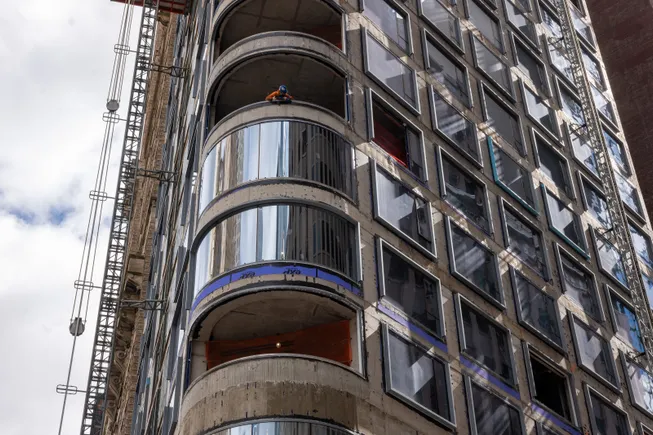A new law in New York will directly affect the bidding process for contractors and subcontractors.
As of Dec. 30, 2024, contractors and subcontractors on public projects and private projects under Article 8 will be required to register with the New York State Department of Labor before they can bid on or perform work. After a contractor is approved, a certificate of registration will be issued electronically and is valid for two calendar years.
The initiative is meant to ensure compliance with labor standards and fair practices throughout New York’s construction industry, said Kathleen Bloss, partner at The Bonadio Group, a Rochester, New York-based accounting and consulting firm.
Here, Bloss talks with Construction Dive about the types of projects the law covers, the steps contractors must take to comply and the ways it aims to improve safety in construction.
This interview has been edited for brevity and clarity.
CONSTRUCTION DIVE: Who does this new registration requirement apply to, and are there specific roles or types of projects that are impacted more than others?
KATHLEEN BLOSS: The new registration requirements apply to contractors and subcontractors performing work on public projects or private projects that may have a portion of public funding or subsidy — for example, renewable energy systems, broadband expansions, climate-related projects or roadway excavations. A private contract is covered under the requirements if public funds are paying more than 30% of total costs and the project costs more than $5 million.
What are the most critical steps contractors and subcontractors need to take to ensure they meet the registration requirements with the NYSDOL?
Contractors must visit the NYSDOL Public Work Registry Website to begin their registration.

Kathleen Bloss
Permission granted by The Bonadio Group
Contractors and subcontractors must provide detailed identifying information about their business, its officials, workers compensation and disability insurance, previous labor law violations and apprenticeships. Any contractor or subcontractor who bids on or begins work on a covered project after Dec. 30, 2024, without being registered with NYSDOL will be subject to fines and stop work orders.
What are the potential consequences for contractors who fail to register or who fall out of compliance after registration?
Contractors failing to comply with the new requirements face penalties of up to $1,000 per infraction. They also risk project interruptions, as unregistered contractors or subcontractors may face work stoppages if they do not comply. Unregistered contractors cannot bid on public work projects.
How will this initiative impact labor standards and fair practices in New York’s construction industry?
The benefits to contractors in New York’s construction industry relate to improved credibility and a streamlined process. Being listed on the NYSDOL registry can enhance trust with clients and partners. In addition, pre-registration reduces administrative barriers when bidding on new projects.
For consumers, the registry ensures that contractors adhere to labor laws and safety standards, reducing risks for consumers and workers alike. Ensuring that contractors are complying with prevailing wage and other labor standards will ensure that contractors are paying their laborers wages and benefits at fair rates that are not less than what others locally pay their workers for similar projects.
What are some other developments around this requirement you are keeping tabs on?
Contractors are encouraged to obtain affirmative representations from project owners regarding whether they are receiving public funds or if the project is considered a covered project prior to bidding. If a project owner is unsure if their project is a covered project, they can check with the Public Subsidy Board to determine the project’s status and if it is covered by prevailing wage requirements.
The project owner has a responsibility to verify the registration status of all contractors and subcontractors before they begin their work. A contractor has the same responsibility to verify the registration status of any subcontractors hired before they begin their work.

